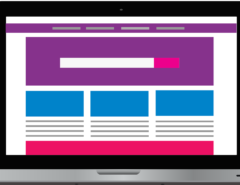UPSC, IAS or IES seek the best of best candidates through its tough examinations to staff some of the highest posts in government departments. Once a year, these exams take place and people from all over the country apply for it.
It takes place in three phases – the General Studies papers, the main paper, and the personal interview. Candidates who make the best impression in all three are selected for recruitment.
If you are an aspiring examinee for this year’s UPSC or IAS exams, you probably know by now how difficult it is to crack it. Even after months of tireless preparation and studying, one might not succeed.
It is one thing to appear in the test and take the exam. But the preparation for it is a completely different thing. It requires complete devotion and concentration on the candidate’s behalf to prepare themselves for the UPSC or IAS exams, especially if they want to get a higher rank. But it is easier said than done.
To help you out, there are numerous coaching centers spread across the country, which will systematically guide you through the preparatory process. Many candidates are nowadays choosing the e-learning portals like Seb Academy, Udemy, Byju’s, Khan Academy, etc over their traditional tutors for guidance. But are they really useful? Let’s find out.
1) You find exactly what you want
When you are learning from study materials and other sources, you have to be the best judge of what you should study and what you should not. Chances are, you might miss out on something or read something extra that you did not need to for the examination.
The educational apps are made keeping in mind the exact examination or subject you want to prepare and what you need to prepare for the exam. The UPSC based applications will guide you very specifically in this matter.
2) You get 24×7 access
Once you have the app downloaded in your phone, you have access to your account and everything study related 24×7. You do not need to wait for the next day’s class if you feel like you need to see a particular lecture once again.
You can just get into the app, find the video and play it again. The mentors and tutors of these educational apps are also available for guidance and support, in case you need help with some topic or need a clarification.
3) Educational apps save your time
Time efficiency is the best part of educational apps. You could be a working person, a busy mother, a college student, or anybody in general who does not have the luxury of extra time. The apps bring the training for you UPSC exams right to your fist and save you the trouble of conveyance.
It also helps if you have health issues or certain other unexpected events like transport strikes or weather trouble. All these things will not be a trouble if you are taking the lesson from your home or office.
4) They trigger systematic learning
Your mutual relationship with the physical coaching classes is over once you are out of there. Though you will be going back the next day, it is not quite as same as having it right in your palms, right? With the educational apps right with you, in your smartphone all the time, it helps to keep you connected with the exam preparation right down to the day of examination.
5) They have super helpful additional features
Other than the fact that you can access the study material anytime for studying or any quick query, the educational apps often have a number of other features as well.
Many of them have options to draw up a time schedule for you, let you set reminders for study time and breaks in between, help you make a checklist of things done and yet to do and so on. It kind of makes the toughest of exam preparations and bit lighter and more exciting.
6) You can literally access it from anywhere
The accounts are obviously portable. If you are staying at a friend’s house or at a relative’s or out for a small vacation, and feel like brushing up on your studies a bit – the apps are there to help you out.
You can take your education app everywhere in your pocket, but you can’t do that with your real coaching class or take along the big, bulky books everywhere.
Now that you have read that list, the educational applications do seem a bit useful. Don’t they? It is obviously a much more practical way to prepare for your UPSC, IAS or IES examinations.
With the burden of the syllabus and qualifying in the test is already so high, you need to opt for all the options that will make it easier for you – an educational applications is one.






Great job done Vineet, appreciate your hard work for the readers. I was going through several blogs here on the internet, and it was just a random look over yours. But must say nice information shared.Myself working in the education industry truly agrees with some of your highlights here.
Keep sharing!